What Is An ‘Anime Game,’ Anyway? – This Week in Anime
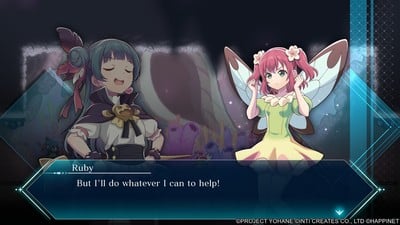
Chris and Lucas try to quantify the ‘vibe’ that makes something an anime game; is it point of origin, art style, or something else?
Disclaimer: The views and opinions expressed by the participants in this chatlog are not the views of Anime News Network.
Spoiler Warning for discussion of the series ahead.
Street Fighter II: The Animated Movie, God Eater, Muv-Luv Alternative and Sakura Wars the Animation are currently streaming on Crunchyroll.
Lucas
Two summers ago, I was waiting in line at Anime Expo (as one does) and struck up a conversation with the person ahead of me. They were tucking their Switch into their backpack, so I asked them, “Hey, what games do you play?” They replied, “Oh, ya know, mostly anime games.” I laughed as I could have guessed the answer and said, “Makes sense, and me too! Have you checked out Neon White? It’s rad as hell!” Their brow furrowed in ignorance, “No, but I’m playing Master Duel and Genshin. Are you into those?” My smile went from friendly to a facade as I answered: “…No.” We then listed nearly a dozen games that neither of us had played! So, my question for you today, Chris, is, “What the hell even is an anime game!?”
Ah, gaming. The only pastime more engaging is pedantically arguing semantics, so sure, I’ll head down this rabbit hole with you, Lucas. Let it be known that this go-around, we are This Week In Games—wait, no, can’t use that, our good friend Jean-Karlo already has that as his column. Oh well, I’m sure we’ll figure something out before this is over.
Or maybe not, since you’d think the answer to what an “anime” game is would be quickly deduced: a video game based on an anime. Boom, dusted.
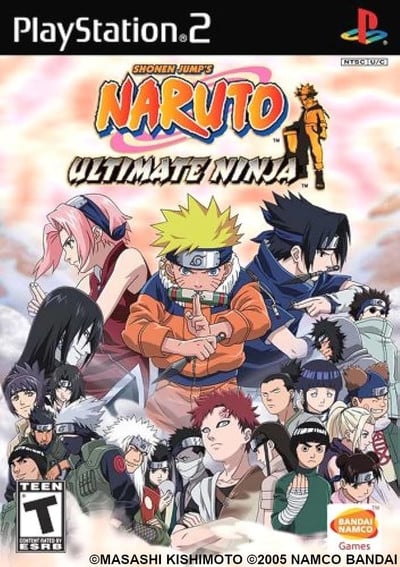
Though, at the risk of going on an immediate tangent, are any of these kinds of licensed anime games good? I know Dragon Ball FighterZ is still quietly huge, and I’m hoping for good things with the Sand Land game, but these kinds of games usually feel more like a cash-grab than anything else.
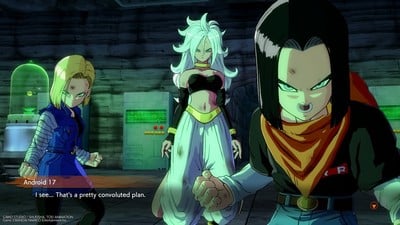
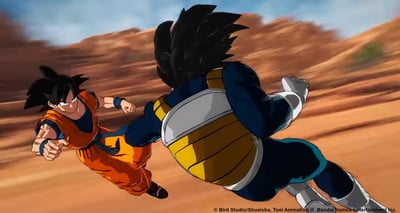
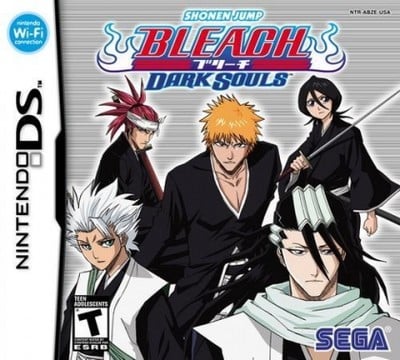
Forget FromSoft’s offerings, this will always be my Dark Souls.
Still, while fighters based on anime series make for an easy “anime game” designation, they also provide a handy segue into the more nebulous definition that kickstarted your conundrum. After all, “anime fighter” is a recognized subset of the broader fighting game genre!
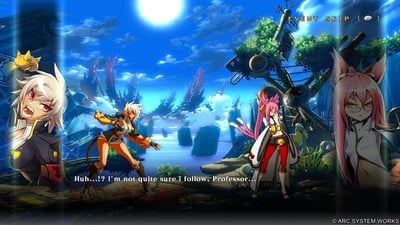
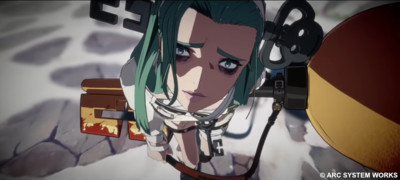
That raises the question—how do games that evoke anime fit into the “anime game” umbrella term? Or what happens when a game is so popular that it gets an anime adaptation, like the aforementioned Street Fighter, or a title like Bayonetta?
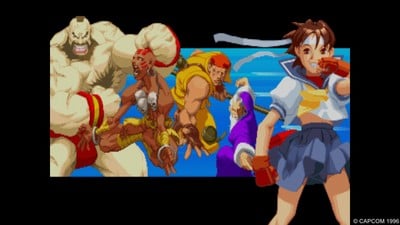
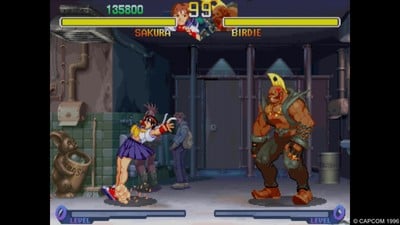
Still, stuff like Guilty Gear, BlazBlue, and French-Bread’s Under Night In-Birth are built on the same aesthetic sensibilities as popular Japanese anime and manga that they fit right in with that fandom. Heck, BlazBlue is another one that has its own anime adaptation, though I haven’t seen folks talk about it much. They can’t all be Street Fighter II: The Animated Movie.
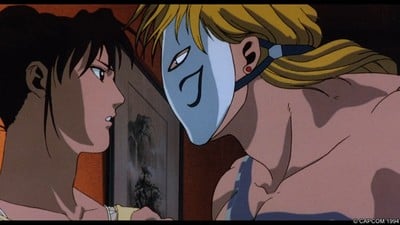
If aesthetic signifiers are all it takes to be an “anime,” then any video game made in Japan thus counts under the “anime game” term. However, that might speak to the multimedia sensibilities of so many of these productions, wherein you can wind up with something like Melty Blood, which encompasses fighting game, visual novel, manga, and out there in the tangential adaptational ether, anime.
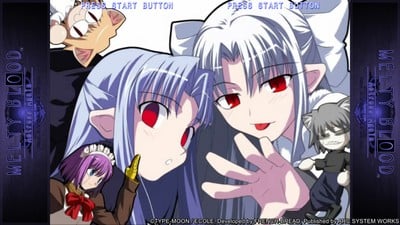
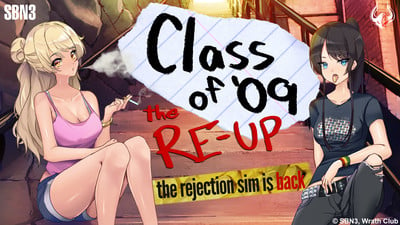
Also, this definition leaves out the Monster Hunter games, and I don’t believe there’s a single person on the planet who’s played any amount of a Monster Hunter game without having watched at least an episode of an anime!
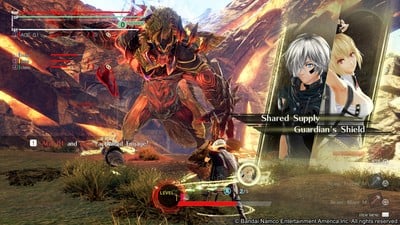
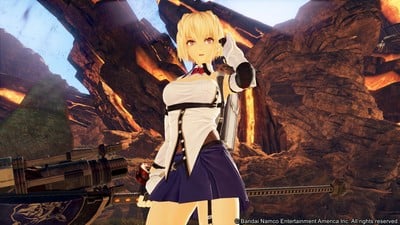
You also bring up an important distinction, which is that there is a metric crapton of games that lovingly ape that anime aesthetic but weren’t produced in Japan and have bugger-all to do with the art form. And while I love stuff like VA-11 Hall-A and Helltaker, it’d be disingenuous to say they belong to the same ilk as anything from, say, the Type-Moon Industrial Complex.
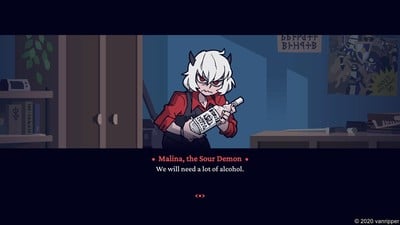
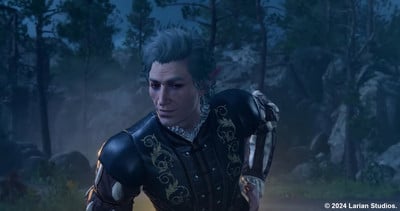
Astarion is a bishie anime boi confirmed!
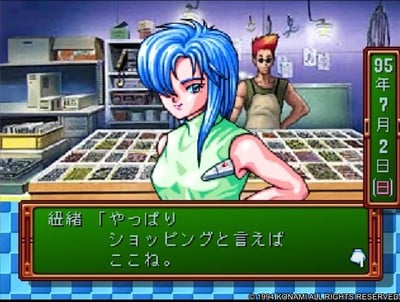
Now, if only we could get them to stop doing dating sims as jokes for April Fools’ Day.
Oh my god! I’m not even super into visual novels or dating sims, and I always find those super tacky! It feels more disrespectful to games as an art form than anything else when we get groan-worthy games that are glorified commercials like I Love You, Colonel Sanders! or The Murder of Sonic the Hedgehog.
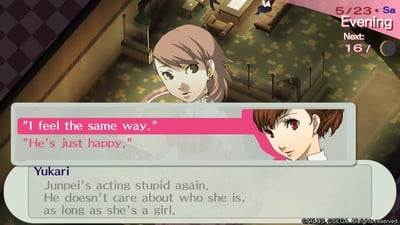
You don’t get here without Tokimeki Memorial, and that’s to say nothing of several of those fighting games and indie hits I rattled off that also owe their existence to VNs.
This is why franchises like Armored Core and Virtual On are 100% anime games despite not sharing anime visuals or the social elements pioneered in Tokimeki Memorial. They’re both explicitly engaging with ideas and storytelling conventions in mecha anime, making them “anime games.”

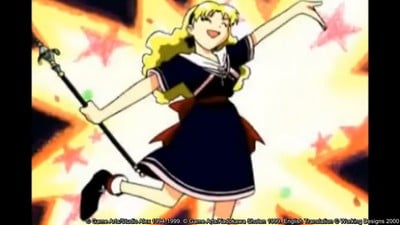
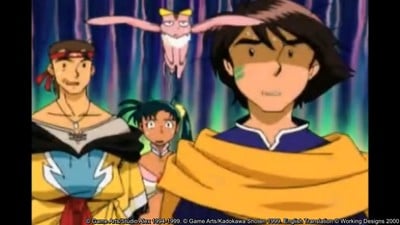
Also, fwiw, the Monster Rancher games are my underappreciated PS1 anime game darlings!
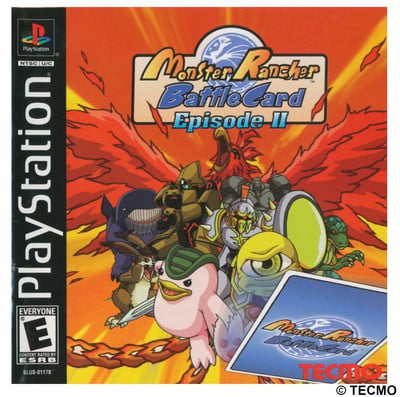
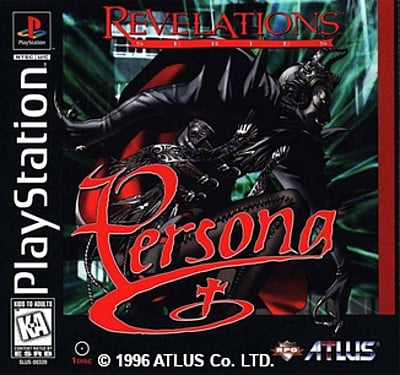
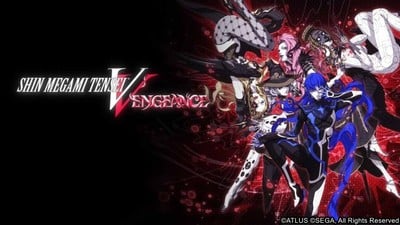
Now if only ATLUS would drop their habit of releasing enhanced and extended additions of games that are already too long for their own good…
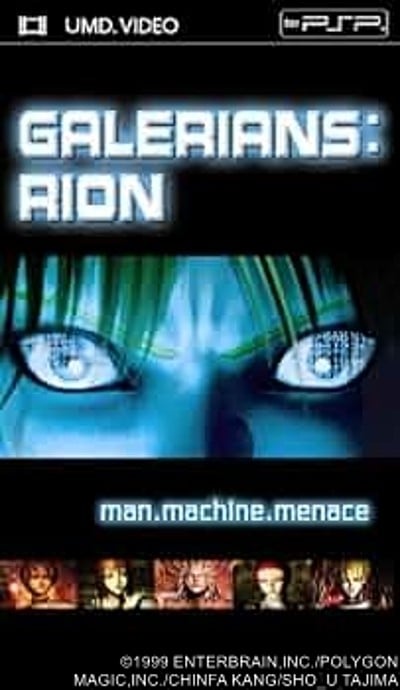
This gets into the idea that the definition of an “anime” game isn’t just one of aesthetics or story influence, but the delivery of that material. It’s why one of the most “anime” games in my recent memory is the 2019 soft reboot of the Sakura Wars series. Sure, this game has Tite Kubo character designs, and an anime OP like so many others, but it also has next-episode previews.
Also another hot springs scene, so at least my standards are consistent.
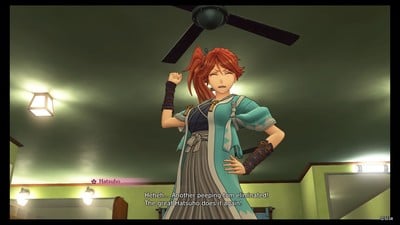
And you’re right that this categorization comes down to vibes more than anything else. If a game makes you utter the iconic Metal Gear Solid line, you’re playing an anime game, my friend!
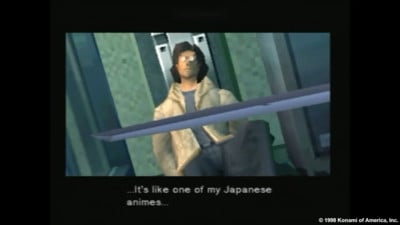
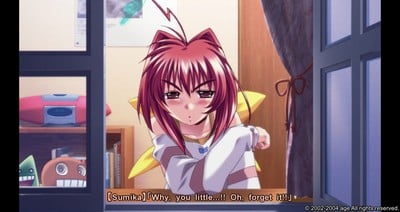
While I can confirm that those vibes are important, I would round back to my earlier point that these things still require some confluence of Japanese production and anime aesthetics to meet the qualifications. Otherwise, we’re dangerously close to considering Doki Doki Literature Club an “anime” game, and I ain’t about that.
Also, while we’re talking about older, semi-forgotten anime games, I’d be remiss if I didn’t mention the Fate/stay night franchise! Where, as far as I can tell, developer Type-Moon really wants folks to forget the more adult focus of the first game in its now money-factory multimedia machine.
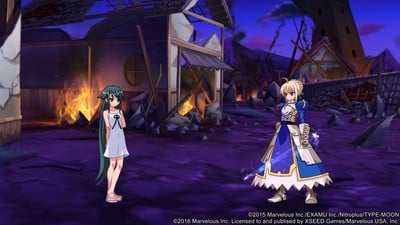
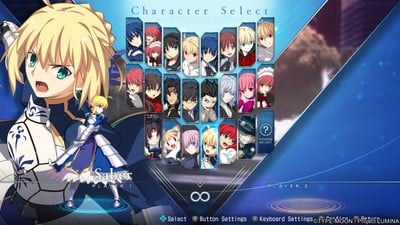
Though notably, the original Fate/stay night is hardly forgotten. It’s finally getting an English release later this year, along with Tsukihime, progenitor of Melty Blood.
That only took twenty years and the most successful mobile game on the planet.
Wait, I just read the fine print, and it looks like this remaster is based on a version stripped of adult content. Still, I’m sure it’ll serve as an onramp for me to finally check out one of the most anime-ass gaming franchises around today.
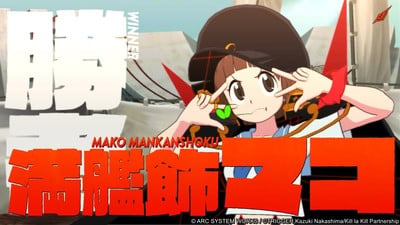
And maybe that’s a great definition to help wind down this convo; if a game’s a little horny, there’s definitely a seat for it at the anime game lunch table!
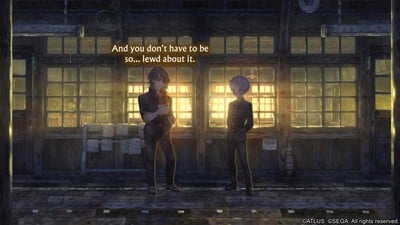
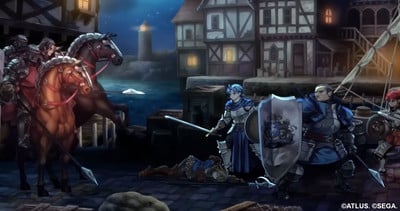
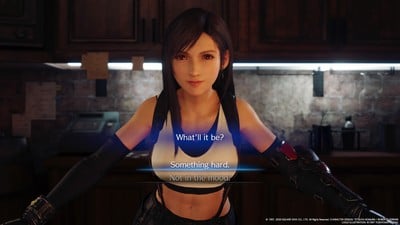
Hey, we’re plugging other regular segments across Anime News Network in between being incredibly pedantic; if that’s not in the This Week In Anime spirit, I don’t know what is!
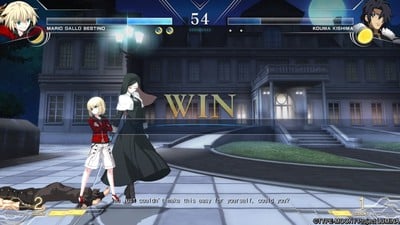
Source link
#Anime #Game #Week #Anime

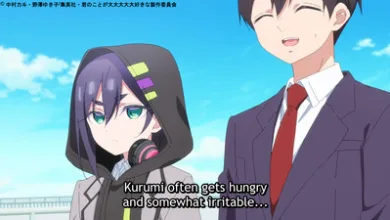

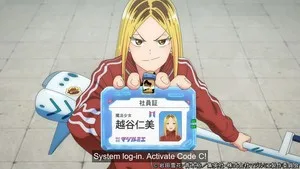
![For the Fans[ervice] - This Week in Anime](https://theanimenews.net/wp-content/uploads/2024/11/1732205217_For-the-Fanservice-This-Week-in-Anime-390x220.webp)